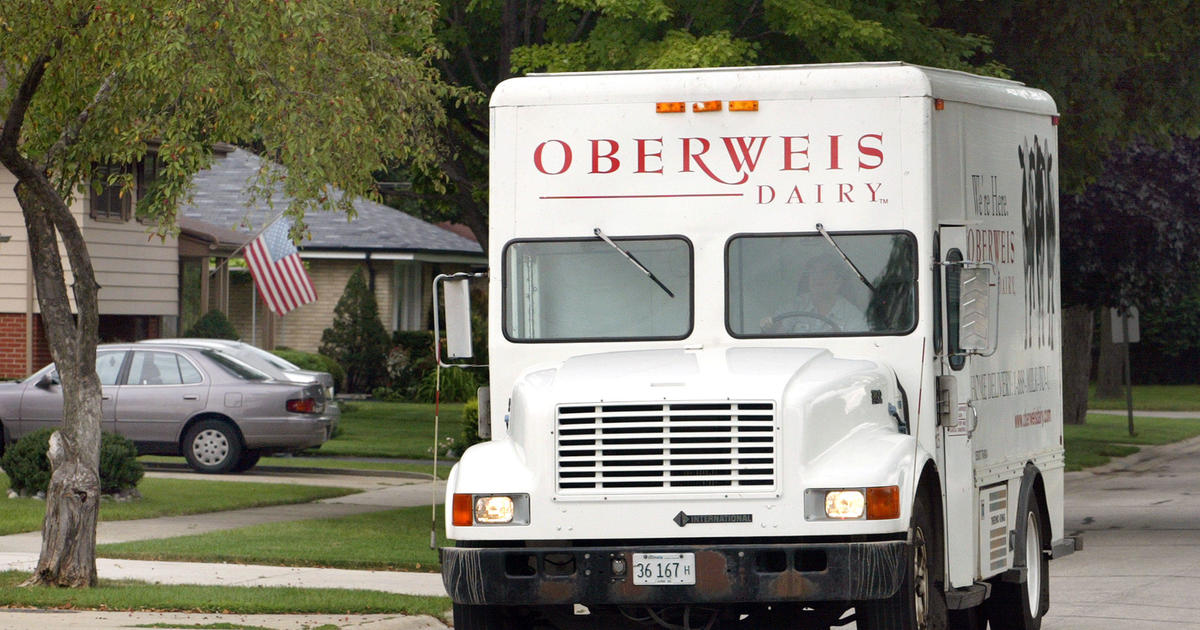Chicago Apple Fans On Jobs' Death: 'He Was Like Our Einstein'
CHICAGO (CBS) -- Although Steve Jobs' battle with a rare form of pancreatic cancer was no secret, the Apple co-founder's death surprised both workers and customers alike.
Jobs died Wednesday at the age of 56.
And the debate began almost immediately as to whether Apple can survive, and remain an innovator, without Jobs at the helm.
"He's just so innovative," said Tami Bushy, who came to the North Michigan Avenue Apple Store from Tupelo, Miss. "He tried to structure the company so it would continue on. He knew this was inevitable. But I just don't think that anyone will have his vision."
LISTEN: WBBM Newsradio's Bob Roberts reports
Podcast
Graphic design student Marven Kimbrough disagreed.
"Apple is a culture now," he said. "I'm pretty sure when he stepped down he was very confident in the man they put in charge (recently-named Apple CEO Tim Cook, a long-time Jobs lieutenant). Apple? They'll continue to be innovative. I know he was the visionary behind it but a lot of people are around who made his ideas come to light."
Customers visiting both the Michigan Avenue store and the Old Orchard Apple Store say the mood was somber.
At the Old Orchard Apple store, one long-time employee described Jobs as a "kind of cool uncle whom you see only once or twice a year, but you really respect him."
Yet another gave this simple eulogy: "He was like our Einstein."
Jobs had been suffering from various health issues following the seven-year anniversary of his surgery for a rare form of pancreatic cancer in August 2004. Apple announced in January that he would be taking an indeterminate medical leave of absence. Jobs then stepped down as chief executive in late August, citing his inability to "meet my duties and expectations" stemming from his illness.
In a statement, Apple paid tribute to its one-time leader as "a visionary and creative genius" adding that the world had "lost an amazing human being."
"Those of us who have been fortunate enough to know and work with Steve have lost a dear friend and an inspiring mentor. Steve leaves behind a company that only he could have built, and his spirit will forever be the foundation of Apple," the company statement said.
Jobs "died peacefully today surrounded by his family," the family said in a statement, which went on to thank the "many people who have shared their wishes and prayers during the last year of Steve's illness" and promised a website for those who wish to offer tributes and memories.
Jobs had undergone a liver transplant in April 2009 during an earlier planned six-month leave of absence. He returned to work for a year and a half before his health forced him to take more time off. He told his employees in August, "I have always said if there ever came a day when I could no longer meet my duties and expectations as Apple's CEO, I would be the first to let you know. Unfortunately, that day has come."
One of the most legendary businessmen in American history, Jobs turned three separate industries on their head in the 35 years he was involved in the technology industry.
Personal computing was invented with the launch of the Apple II in 1977. Legal digital music recordings were brought into the mainstream with the iPod and iTunes in the early 2000s, and mobile phones were never the same after the 2007 debut of the iPhone. Jobs played an instrumental role in the development of all three, and managed to find time to transform the art of computer-generated movie-making on the side.
The invention of the iPad in 2010, a touch-screen tablet computer his competitors flocked to reproduce, was the capstone of his career as a technologist. A conceptual hybrid of a touch-screen iPod and a slate computer, the 10-inch mobile device was Jobs' vision for a more personal computing device.
Jobs was considered brilliant yet brash. He valued elegance in design yet was almost never seen in public wearing anything but a black mock turtleneck, blue jeans, and a few days worth of stubble. A master salesman who considered himself an artist at heart, Jobs inspired both reverence and fear in those who worked for him and against him, and was adored by an army of loyal Apple customers who almost saw him as superhuman.
Jobs was an intensely private person. That quality put him and Apple at odds with government regulators and stockholders who demanded to know details about his ongoing health problems and his prognosis as the leader and alter ego of his company. It spurred a 2009 SEC probe into whether Apple's board had made misleading statements about his health.
In the years before he fell ill in 2008, Jobs seemed to soften a bit, perhaps due to his bout with a rare form of pancreatic cancer in 2004.
In 2005, his remarks to Stanford graduates included this line: "Remembering that I'll be dead soon is the most important tool I've ever encountered to help me make the big choices in life. Because almost everything--all external expectations, all pride, all fear of embarrassment or failure--these things just fall away in the face of death, leaving only what is truly important."
Later, in 2007, he appeared onstage at the D: All Things Digital conference for a lengthy interview with bitter rival Bill Gates, exchanging mutual praise and prophetically quoting the Beatles: "You and I have memories longer than the road that stretches out ahead."
Jobs leaves behind his wife, four children, two sisters, and 49,000 Apple employees.



